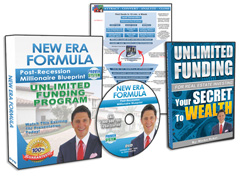
 By definition, a condominium is an individually owned unit of real estate in a building or on land that is owned in common by the owners of the units. There are things to weigh and consider before any investor decides to own a condo particularly when compared to single family or even multifamily properties. There are questions that you need to address and weigh as to any particular opportunity and calculations needed to determine if the numbers reflect a very good deal for the dollars offered or not.
By definition, a condominium is an individually owned unit of real estate in a building or on land that is owned in common by the owners of the units. There are things to weigh and consider before any investor decides to own a condo particularly when compared to single family or even multifamily properties. There are questions that you need to address and weigh as to any particular opportunity and calculations needed to determine if the numbers reflect a very good deal for the dollars offered or not.
Investors must crunch the numbers to accurately estimate the investment return of capital. Will it be a fix and flip or more than likely, a buy and hold for rental income and positive cash flow. Each choice has numbers and circumstances to consider. An investor seeking positive cash flow must accurately and diligently estimate the annualized rent in the available marketplace, annual repair and maintenance costs, insurance and taxes, and any other expenses likely to be incurred. There are marketing and advertising costs to secure a tenant, repair and replacement costs when one tenant moves out and another comes in, vacancy costs when there is no tenant, and possible legal fees and attendant costs if you need to evict. There are other factors to consider such as monthly condominium association fees, some low, some surprisingly high. An investor must consider that assessments can be levied against the unit by the association to cover certain designated community needs. They can be assessed in a required lump sum and can be huge.
Each condominium will have its own unique set of circumstances from location, the condo community itself, and the localized marketplace, and it is always buyer beware.
Condominiums are controlled by and subject to the operative condominium documents. As an investor, understanding the documents and your standing as an owner is essential due diligence. As a purchaser, you will be required to sign that you have received, reviewed, understand, and will comply with those documents and especially the rules and regulations of the condominium community.
The operative instruments will include the declaration, by-laws, the condominium plats and plans, the articles of incorporation, unless the association is unincorporated, and the operative rules and regulations. A savvy investor will also make sure to get the current budget spreadsheet to review as well. The investor must especially be aware of any use restrictions that most certainly can impact any investment and return of capital. As an investor owner, there may be an owner occupancy requirement that requires compliance for a minimum of two calendar years, sometimes more, if at all, before an owner can rent the unit. In fact, most condominiums already have rental restrictions of some sort in place as too many units serving as rentals at the same time can affect the overall condominium property values and depress values for resale or to refinance. The homeowner association may have final say on who you may rent to. Condominiums sometimes have a specified ownership requirement that forbids corporate entity ownership and many an investor will purchase in a corporate entity name, not their own as an individual. The condominium may have pet limitations that must be complied with as to size, weight, even allowed breed if they allow pets in the first instance. There may an additional amenity cost for certain community items such as the use of the tennis court. Do the by-laws have architectural control requirements which must be followed in order to be permitted to make any external changes to the unit.
It is sound advice to advise never ever rush into buying a condominium unit. A single family residential purchase is customarily considered a better investment for the dollars than purchasing a condominium. Condominiums seldom hold their value as homes do and the chances of a drop-in value and no relative appreciation value are far greater. The risk to reward calculation must always be made. Study the budget. The very financial health of the association and the condominium community may be a huge issue. Are there adequate reserves on hand to cushion unusual repair and maintenance issues or to avoid an assessment? The composition of the condominium leadership must be considered. Owner occupiers normally take better care of community assets than if they are mostly landlords. Is there a lot of Board bickering or fighting going on? What about the neighbors and the makeup of the community as a whole? Condominium owners do live in close proximity to one another.
Sure there is the advantage of no yard to mow and having shared expenses for maintenance. That appeal seldom overcomes the risks of investor ownership of a condominium. For a real estate investor interested in return of capital and positive cash flow, there seems little justification to condominium ownership over simple single family residential home ownership.. From my perspective, don’t do it.
Request FREE Funding Kit and Discover How To Legally Bypass Banks And Gain Direct Access To "No-Credit-Required" Funding You Can Use To Achieve Your Financial Freedom... Start Now!












